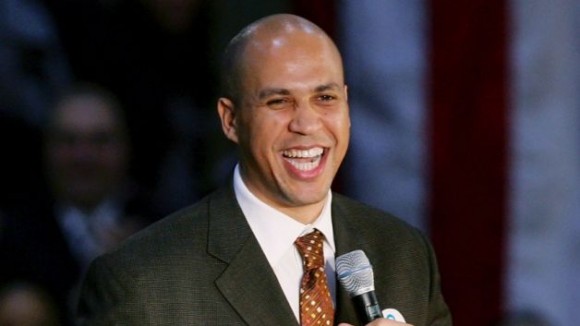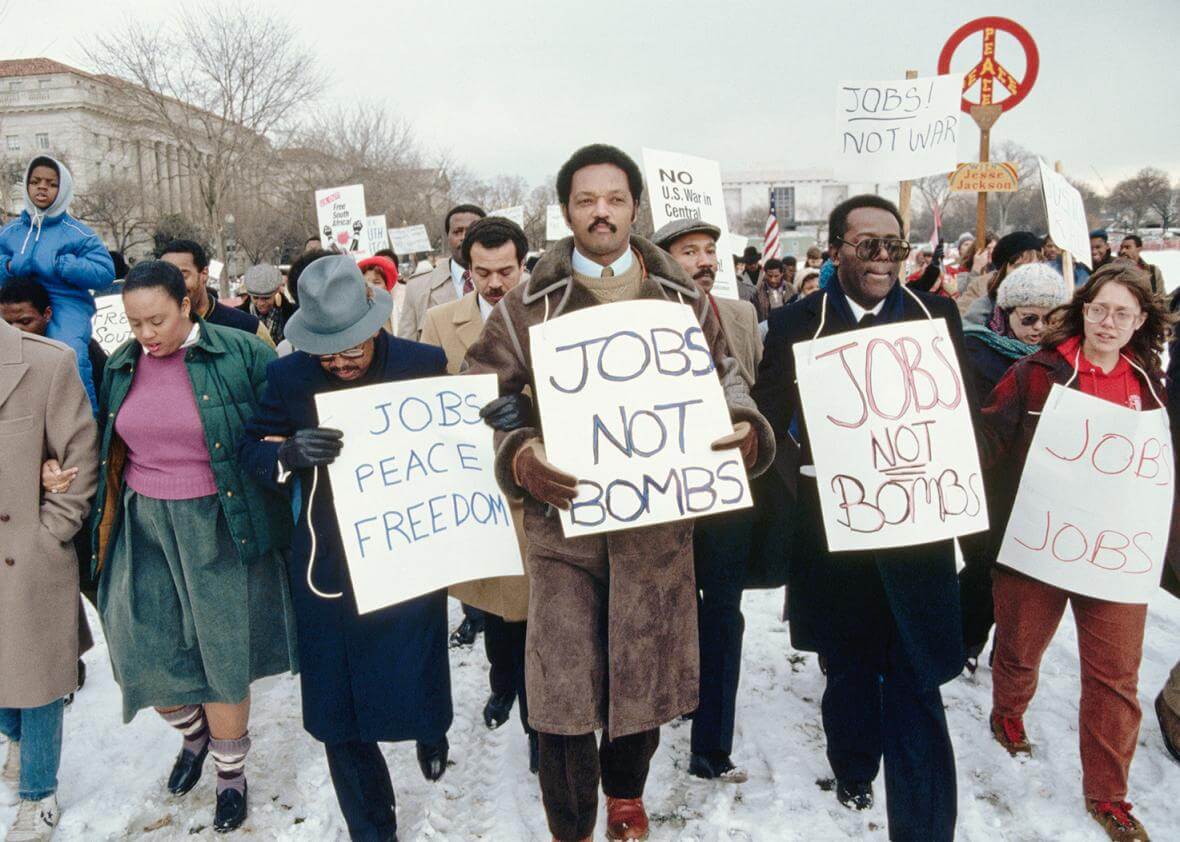One of the most crucial senators on the Iran Deal is New Jersey Senator Cory Booker. He is still studying the deal and is under considerable demands to support it from the Obama administration and his own constituents.
A lot of the pressure on Booker to vote against the deal is coming from an old friend of his, Rabbi Shmuley Boteach, the outspoken supporter of Israel who has Sheldon Adelson’s considerable support (and is also an expert on lust in marriage). But Boteach says that “tensions” have developed in his friendship with Booker and the “strain” has led to many “tough” conversations about the matter.
The rabbi’s latest newspaper ad and column are both so desperate they suggest that Boteach can’t get his old friend on the phone, and he’s reduced to addressing his old friend in the press, and even playing the race card, and the “Jewish donor” card.
First, check out this full page ad in the New York Times urging Booker to show courage and join Chuck Schumer against the deal. It is so over the top that it could make Booker’s support for the deal more likely. Boteach says Booker will have “blood” on his hands if he approves the deal, because it will fund Iran’s terror activities, and states that Iran wants to kill millions of Americans. Huh?
Senator Booker, at this grave moment we implore you to act with courage and vote to kill the castastrophic deal with Iran. Before Iranian nukes kill millions of Americans.
Does anyone really believe such a thing? No. And the ad barely mentions Israel, which is Boteach’s chief concern. This kind of appeal is so illogical it will make it easier for Booker to walk away from the friendship. Just read Schumer’s reasoning for opposing the deal. It was sophisticated –and straight out of AIPAC, according to White House officials cited in the Times.
Even more bizarre is Boteach’s article in the New York Observer assuring Jews that his old friend Cory Booker will never vote against Israel. Well at least Boteach is being more straightforward now about his concerns. But the article violates the friendship it claims to memorialize. Boteach publishes a lot of old pictures of himself and Booker; and he says that “tensions” have developed in their friendship since the days that the two friends epitomized black-Jewish amity.
Some of that friendship, Boteach says, involved money:
Cory and I spoke at countless Synagogues together and through these evenings, as well as my bringing him to speak at the AIPAC summit in Chicago, he won over significant Jewish donors to his cause, eventually becoming one of the largest recipients of support from pro-Israel donors in the United States. I arranged for Cory to travel to Israel, a country he has now visited three times.
The second racial reference in the piece seems a warning about black-Jewish relations.
Wherever I speak around the United States today Jewish audiences ask me, “What’s happening with your friend Cory?… We’ve always been there for him.”
Many are not as charitable. “You duped us, Shmuley. You vouched for Cory. You persuaded us to get behind him and support him, promising he’d be the best friend Israel ever had in elected office.” I explain to them they have to understand the kind of pressure Cory is under. The Administration surely knows that if the sole African-American democratic Senator, who is a great lover of Israel and the Jewish people, comes out against the deal, it’s game over. What will Jewish senators like Brian Schatz of Hawaii and Richard Blumenthal of Connecticut do then? What excuse would other supporters of Israel like Kirsten Gillibrand have if Cory came out against the deal? So they are subjecting my friend to a level of pressure that those of us outside of elected office can scarcely comprehend.
Rather than judging Cory, the Jewish community should empathize with the difficult choice ahead of him. And still, I know that Cory will do the right thing.
Somehow I don’t think Booker is going to do the right thing for Boteach. The rabbi’s desperation suggests that Booker is basing his decision about the deal on support for his president and not on donor pressure. The signal is, Booker’s in Obama’s column.



I certainly hope Senator Booker is in Obama’s and America’s corner . . . after all, he is an American elected to the United States Senate, not an Israeli elected to the Knesset!
The desperation of Rebbe Shmuley Glick — if he fails to deliver Booker on this key issue, his influence will drop and Adelson would question whether he was worth spending more money on … hence the almost-hysterical campaign to try to force Booker’s vote.
Booker won’t get many Jewish votes if he opposes the Iran deal, to judge by this Washington Post opinion piece today: On the Iran deal, American Jewish ‘leaders’ don’t speak for most Jews.
RE: “You duped us, Shmuley. You vouched for Cory. You persuaded us to get behind him and support him, promising he’d be the best friend Israel ever had in elected office.”
IN OTHER WORDS: You (i.e., Shmuley Boteach) said Cory Booker was a ‘sure thing’ and it turns out he is another Bernie Madoff. We invested a hell of a lot of money in Cory and now he’s not paying off! ! !
FROM WIKIPEDIA [Pay to play]:
SOURCE – http://en.wikipedia.org/wiki/Pay_to_play
The Iran deal is obviously in US strategic and security interests. It seem to me there are three reasons that, either singly or conjoined, impel American politicians to oppose the agreement. The first is opposition to anything Obama proposes, a largely racist motive. The second is a fear of being deprived of or losing Zionist campaign and other money. The third is supporting Israeli interests – as articulated by the Israeli right wing – over US interests, being an Israel-firster. If we look at the Schumer case, he has more campaign money that God and he generally supports Obama’s initiatives so there’s only one motive left. This ought to disqualify him in voters’ minds from elected office.